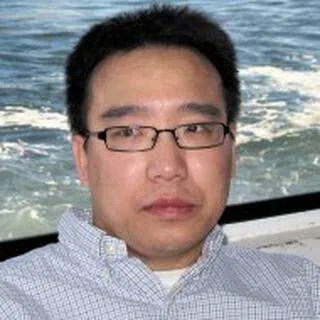'Transnational Chinese-language cyber intellectual enclaves': An emerging phenomenon
Wu Guo observes that with the prevalence of WeChat and other online platforms, "transnational Chinese-language cyber intellectual enclaves" are emerging. Such an avenue is freeing for some, as ethnic Chinese academics around the world who mainly use the Chinese language now have an avenue to share their views with other ethnic Chinese in or outside China. But for those keeping track of where the centre of gravity of China discourse is moving towards and who fear being left out of the conversation - should they be worried?

Since two or three years ago, due to my participation in and contribution of articles to a few WeChat official accounts and WeChat group chats, I noticed a new phenomenon in overseas ethnic Chinese academic circles. With the advent of new media, overseas ethnic Chinese academics are building highly connected and active academic communities with Chinese academics in China and academics for whom the Chinese language is their mother tongue. These communities share information, views and experiences in real time and are gradually working in parallel with the existing academic communities mainly found on Facebook and professional associations that use English as their working language.
...the founders are often renowned academics who have studied in the US and are active in the North American English academia.. native English speakers who use Chinese as a second language are often not members of these groups.
Looking at their backgrounds, some of the founders and hosts of these WeChat-dominant emerging online academic communities are based in Beijing, while others are based in the US or Canada. They usually run their communities in either of the following ways: piggybacking on a particular academic journal and choosing a few Chinese-speaking contributors to form a WeChat group chat; concurrently managing a Chinese website, a WeChat official account, and a WeChat group chat; and managing a Facebook group, a WeChat official account, and a related WeChat group chat at the same time.
Common ethnicity and language a basis for insular online communities?
But whichever model they use, the founders are often renowned academics who have studied in the US and are active in the North American English academia. Another common denominator is that native English speakers who use Chinese as a second language are often not members of these groups. Either that or the founders have intentionally or unintentionally not invited them to join. As a result, because the group members can communicate well in Chinese, communication barriers that might have been there if academics who are not so proficient in Chinese were included are lifted.
...first-generation overseas ethnic Chinese academics working in the humanities and social sciences still choose to live in a metaphorical Chinese "enclave" of information and thought, despite having lived in the US or Canada for a decade or two, or for even longer periods.

At the same time, the possibility of a clash of views among Chinese and ethnic Chinese academics and their "Western" counterparts can also be avoided. I once witnessed an unhappy clash of ideas on a Facebook group: an American anthropologist suggested that Chinese universities with connections to the military should be specially reviewed. A Chinese American academic immediately snapped, "Does this mean that American universities should also disclose such a list?" His comment received many "likes" from ethnic Chinese academics, including me.
American society as a whole, and the operation of certain mechanisms within it have become objects of their criticism and attention.
To a certain extent, apart from daily life at the workplace and academic activities, in terms of their psychological life and areas of focus, first-generation overseas ethnic Chinese academics working in the humanities and social sciences still choose to live in a metaphorical Chinese "enclave" of information and thought, despite having lived in the US or Canada for a decade or two, or for even longer periods. Moreover, with WeChat becoming more commonplace, this Chinese enclave crossing international borders that was already in existence has more room to expand; in the virtual world, it is even easier for the academics to meet online and express their views freely.
Viewing the 'West' as an object
Being first-generation immigrants, as their understanding of the country deepened, some ethnic Chinese academics have gradually adopted a perspective of scrutiny and research towards the society and politics of the countries that they reside. Such analysis is undertaken in their position as both "participants" and "observers". They possess a more independent stance and a clearer self-awareness, and do not take the complete "integration into the mainstream" of American and Canadian societies as an obvious and ultimate goal. American society as a whole, and the operation of certain mechanisms within it have become objects of their criticism and attention. I am tentatively calling such a phenomenon "viewing the 'West' as an object".
Founders of some WeChat official accounts see promoting cultural exchanges between China and the West as their clear vocation.

Judging by the level of interaction between the founder, contributors and audience on these new media platforms, the we-media option frees some overseas ethnic Chinese academics from the drawbacks of contributing to English academic journals and monographs that may be more professional and stringent but have a smaller readership and a longer publication cycle. These overseas ethnic Chinese academics are also able to bypass complex review procedures of domestic Chinese print media and can directly share their experiences and observations with the local Chinese audience instantly. This means that academics can now document and openly disseminate their papers, information on career opportunities, observations of Eastern and Western societies, and current affairs commentaries in real time. They need not wait until reaching a ripe old age before sitting down to write their memoirs like some older-generation academics do.
Founders of some WeChat official accounts see promoting cultural exchanges between China and the West as their clear vocation. My friend who is a Canadian-Chinese academic established a Chinese new media platform with the clear vision of "promoting international cultural and academic exchanges". Of course, at present, these exchanges are limited to ethnic Chinese academics around the world, academics in China, and the local Chinese audience. They do not refer to exchanges between overseas ethnic Chinese academics and the audience in their respective countries.
Once it goes beyond the scope of academic research and classroom teaching, and enters the realm of mass communication, it is difficult for ethnic Chinese academics who are more proficient in Chinese to express their views, social commentaries, cultural critiques, and current affairs analyses in English print media, online media, or social media, let alone make an impact.
Actually, some native English-speaking American academics have also set up English online forums that either provide translated opinion pieces written by Chinese intellectuals in China, or commentaries written by intellectuals who are invited to contribute articles. However, not all of these intellectuals who are invited to write articles are ethnic Chinese academics.

Boon for some overseas ethnic Chinese seeking a level playing field
From my experience and observation, the majority of bilingual ethnic Chinese academics in North America are the ones who lack means through which to directly communicate with the masses and disseminate their ideas. There is certainly no lack of academic publications or publishing opportunities in North America. On the contrary, be it publishing English books or journal articles, or participating in academic conferences, English academia has provided ample, fair, and quality opportunities in these areas. However, these opportunities are purely for academic research purposes. Once it goes beyond the scope of academic research and classroom teaching, and enters the realm of mass communication, it is difficult for ethnic Chinese academics who are more proficient in Chinese to express their views, social commentaries, cultural critiques, and current affairs analyses in English print media, online media, or social media, let alone make an impact.
That is to say, the age-old desire of Chinese intellectuals to care for society, to influence society to some extent via direct and simple means, and to promote a wider dissemination of knowledge, continues to be a mission for ethnic Chinese academics who have settled down in North America. It is just that the English-dominated environment has made fulfilling these expectations difficult due to various factors such as language constraints and a lack of influence over the media.
They are no longer subject to the usual mode of academic exchange and consultation in English groups, and neither do they have to adhere to the unspoken rules of self-censorship, or be confined to overly formal academic seminars.

The advent of new media seems to have partially solved this problem. Firstly, just communicating in Chinese means that ethnic Chinese academics who are more proficient in Chinese are no longer "guests" as they would have been in professional research groups that use English as the working language. Their relatively disadvantageous position as being passive and subordinate would also be changed. Secondly, in an era that is experiencing major shakeups, ethnic Chinese academics around the world are now able to fully, freely, and quickly share their viewpoints and set agendas with "one's own people" in their native language. They are no longer subject to the usual mode of academic exchange and consultation in English groups, and neither do they have to adhere to the unspoken rules of self-censorship, or be confined to overly formal academic seminars. Conflicts resulting from the discussion of sensitive topics can also be avoided as a result.
Additionally, disseminating information and interacting on WeChat have also offset the challenges of using Facebook in China, and has helped to close the gap between overseas ethnic Chinese academia and local Chinese readers. These may be the reasons for the rise and existence of what I call "transnational Chinese-language cyber intellectual enclaves".



![[Photos] Fact versus fiction: The portrayal of WWII anti-Japanese martyrs in Taiwan](https://cassette.sphdigital.com.sg/image/thinkchina/3494f8bd481870f7c65b881fd21a3fd733f573f23232376e39c532a2c7593cbc)

